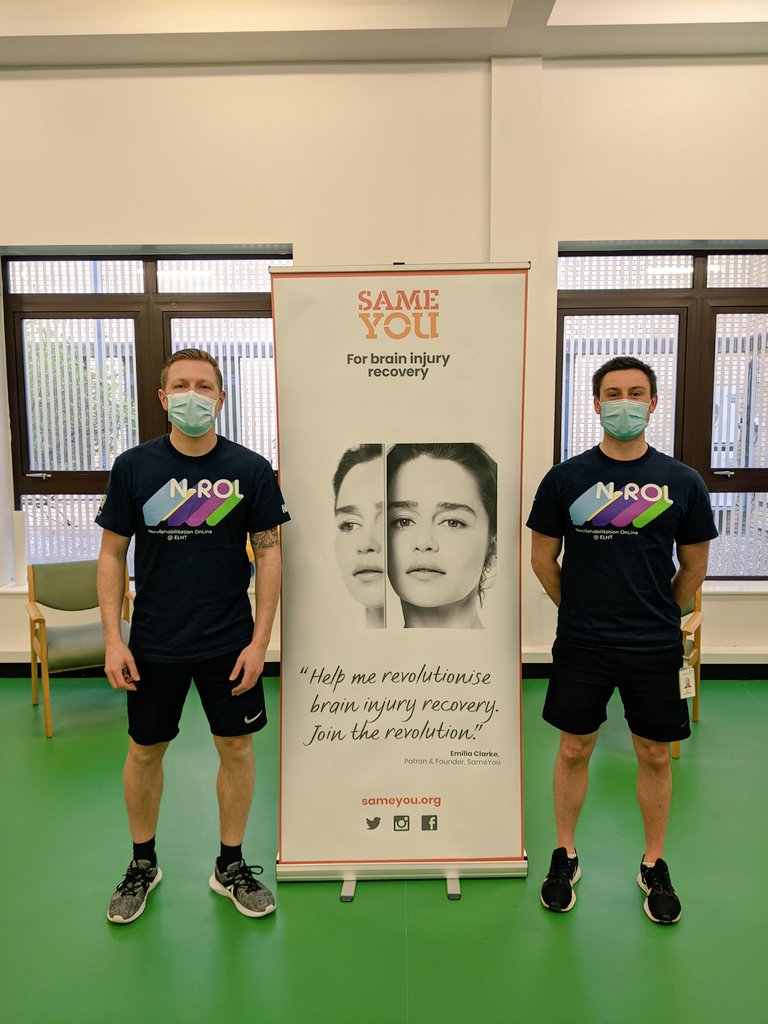A successful scheme to help brain injury and stroke survivors is being rolled out through Lancashire and South Cumbria, thanks to new funding from a national charity.
The Neuro Rehabilitation OnLine (NROL) programme, which is jointly run by East Lancashire Hospitals NHS Trust (ELHT) and the University of Central Lancashire (UCLan), has received nearly £180,000 from brain injury recovery charity SameYou to expand the pilot project.
SameYou has been awarded funding from The National Lottery Community Fund, the largest funder of community activity in the UK, and will enable the scheme to be rolled out through Lancashire and South Cumbria.
The scheme, which uses online video sessions to provide one-to-one and group specialist neurorehabilitation, was created because the Covid-19 pandemic affected the number of patients who could access face-to-face NHS treatment.
Due to the pilot scheme’s success earlier this year, which involved 90 ELHT patients, the programme will now be rolled out to patients within the two counties.
Project lead Louise Connell is a UCLan Professor of Allied Health Neurorehabilitation & Stroke and she also works for ELHT. She said: “I’m absolutely delighted our scheme is being rolled out to help more people who’ve had a stroke or have other neurological conditions throughout the region.
“We know that, due to the Covid-19 pandemic, people with stroke and other brain injuries are spending less time in hospital and receiving less neurorehabilitation. NROL is all about using video technology to support patients, via a range of different groups covering cognitive and physical recovery, in their homes to ensure they can continue their recovery.”
The county wide scheme will involve physiotherapists, occupational therapists, psychologists, speech and language therapists and medical and assistant practitioners from ELHT, Lancashire and South Cumbria NHS Foundation Trust, University Hospitals of Morecambe Bay NHS Foundation Trust and Blackpool Teaching Hospitals NHS Foundation Trust.
One of those who attended the pilot programme was Abdul Malik, who suffered a brain haemorrhage and seizure at his home in Burnley in May last year. Initially he was unable to speak for two-and-a-half weeks and was paralysed down the right-hand side of his body, meaning he could no longer hold his baby son Eesa, who had arrived in December 2020.
The 37-year-old, who was the youngest patient in his sessions, said: “I attended two NROL sessions a week to help with my upper limb movement and before I started, I struggled to move my arm at all but by the end of the programme I was able to hold my arm across my body, meaning I could hold my son again.
“NROL was a lifeline because I was seeing familiar faces twice a week online at a time when Covid-19 was stopping me from seeing anybody outside of my house. The physios and occupational therapists were very helpful and made us all feel comfortable. The patients were experiencing the same physical movement problems so our sessions allowed us to talk about our issues and we became friends too.”
If the regional rollout is deemed a success, a national NROL programme could soon follow. Professor Connell added: “Therapy services are continuing the process of restoration post-Covid and there is a need to understand the learning from online rehabilitation to determine its place in the future. It’s anticipated this will be a hybrid model of face-to-face and virtual input which will allow a greater intensity of therapy to be delivered to more people and in a more convenient way.”



